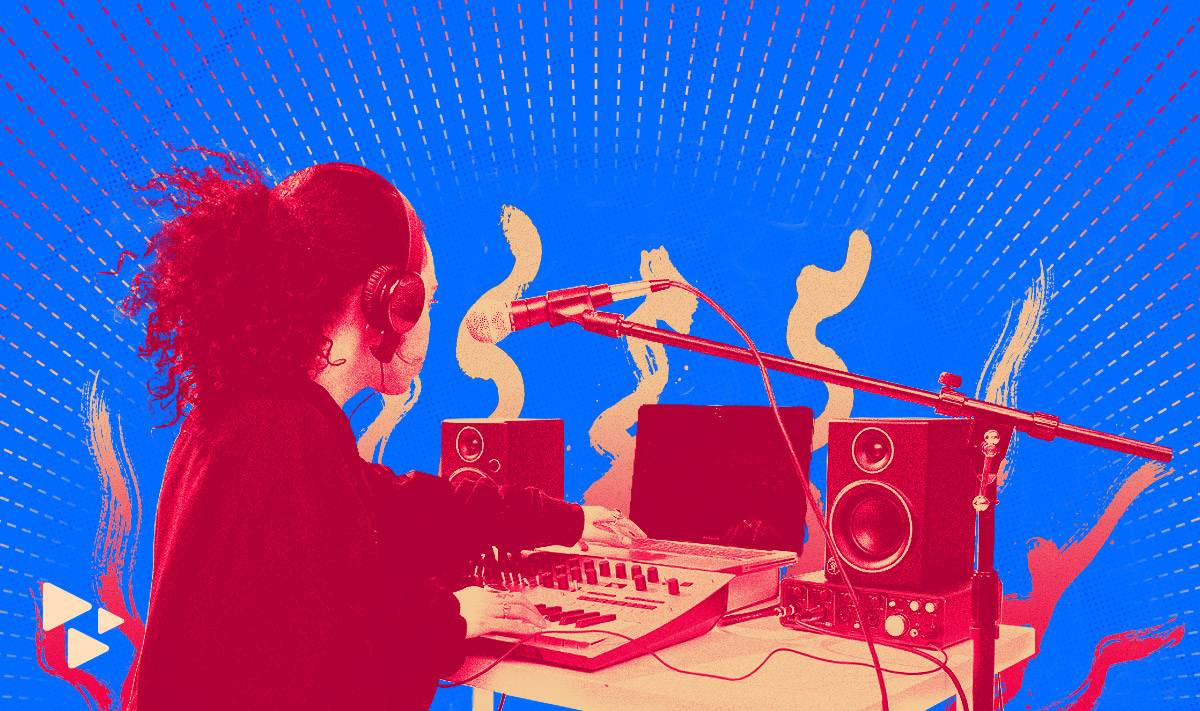
What the Mechanical Licensing Collective means for songwriters
In official music biz terms, the MLC is a U.S.-based Mechanical Rights Organization (MRO) designated by the U.S. Copyright Office to issue and administer the digital audio mechanical blanket license in accordance with the Music Modernization Act to DSPs (digital service providers like Spotify and Apple Music) in the United States.
What this means for you, the independent artist, is that the MLC was created to help songwriters in the U.S. collect mechanical royalties generated from streaming. Since these royalties can be difficult to collect on your own, the MLC is an extremely helpful organization, especially for indie artists.
What is a mechanical royalty?
Every time a song you’ve written is manufactured on a CD, downloaded on a digital music retail site, or streamed through services like Spotify and Apple Music, you’re owed a royalty from that transaction. This is called a mechanical royalty.
How are mechanical streaming royalties generated?
Mechanical royalties get their name from the mechanical recreation of a composition. This dates back to physical media like vinyl and CDs, when songwriters and publishers were owed royalties when compositions they owned were pressed onto media formats.
Nowadays mechanical royalties are generated whenever a composition is mechanically recreated. This can either be from via either a download purchase or interactive stream. So whenever someone buys a song from a download store like iTunes or presses “play” on an on-demand streaming platform like Spotify or Apple Music, that will generate a mechanical royalty payable to the composition’s copyright holders (songwriters and publishers).
Does the MLC collect international royalties?
The MLC only collects mechanical royalties from streaming platforms in the U.S. This distinction is important, because the MLC does not collect mechanical royalties generated by platforms outside the U.S.
The good news for international artists is that you can still collect mechanical royalties from the MLC if you’re in a country outside the U.S., since the MLC pays copyright holders no matter where they’re located.
How do copyright holders collect royalties from the MLC?
The owners of composition copyrights must “Connect to Collect” (TM) with the MLC. This means any music publishers and self-administered songwriters (songwriters who retain the right to collect their own mechanical royalties) who wish to collect royalties from the MLC must become a member by registering with them.
Do I need to register with the MLC?
Not if you’re using CDB Boost! The MLC is working with the Harry Fox Agency (HFA) to build a database of works. With CDB Boost, we’ll register your music with The MLC and help you earn your mechanical royalties whenever your original songs are streamed in the United States. That means all CDB Boost members will have their songs transferred to the MLC’s database with all the ownership information.
What’s really cool about the MLC’s database is that it’s publicly accessible. This makes it easy for songwriters or other individuals to make sure the ownership information for a song is correct. It also increases transparency as far as who owns what as more platforms like Spotify are making such metadata public.
What else does the MLC do?
The MLC provides blanket licenses for streaming services. It provides a baseline structure to ensure that rights holders collect all mechanicals from every source. The MLC is responsible for matching those royalties to copyright holders and paying them out.
Do I even need a publisher anymore?
Absolutely. The MLC collects and pays mechanical royalties for downloads and streams. However, it does not replace the job of a publisher. Keep in mind that the MLC does not collect performance royalties from performing rights organizations (PROs) like BMI and ASCAP. The PROs use publishers to collect shares of compositions.
